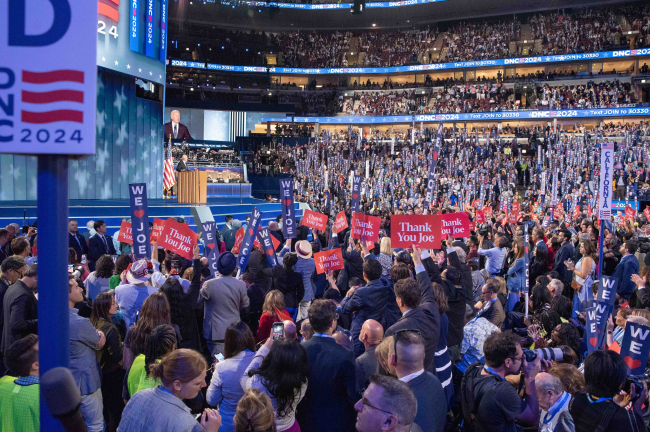
Practical information
The year 2016 was one of rising populism, as demonstrated through Brexit, the US presidential elections or the referendum in Italy. Major elections are also approaching in 2017, with the French presidential election in April/May and the German general election in the autumn. Europe and the world are coming to a significant crossroads. Will the rising tide of populism reach a critical juncture?

Ifri and NHK World invite you to the televised debate program "GLOBAL AGENDA".
“GLOBAL AGENDA” is NHK World’s full-scale, monthly debate program that gathers global opinion leaders to discuss major issues facing the world today. The program is organized with a high-level think tanks or institutes relevant to the topic of discussion. http://www.nhk.or.jp/globalagenda/
Discussion Points
- Discussion1: What’s your view about the current situation of populism in Europe and the world?
- Discussion2: Why has populism gained so much momentum?
- Discussion3: What are the challenges of “Populist politics”?
The Panellists:
- Thierry de MONTBRIAL, Founder and Executive Chairman of Ifri
- Chantal MOUFFE, Professor, University of Westminster
- Werner J. PATZELT, professeur, Dresden University of Technology
- Barry BENNET, Advisor at "Avenue Strategy", Washington, D.C., former senior advisor to Trump’s campaign
Moderator: William Irigoyen, Journalist, ARTE
The recording of this TV program will take place in the Ifri's conference room.
We invite you arrive at Ifri no later than 2 pm so that the TV production team can set up.
A debate in English / By invitation only
Related Subjects
Other events

USA: Democrats Lacking a Vision
As President Trump's approval rating stagnates in the polls and with 18 months remaining before the November 2026 midterm elections, why is the Democratic Party unable to offer a credible and compelling alternative to middle-class American voters? On what issues and around which figures could the radical left and the moderate left find common ground by then?





